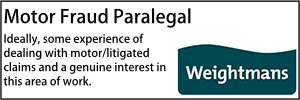Select committee to investigate licensing and standards regime for taxis and private hire vehicles
The Transport Committee has announced an inquiry into standards for taxis and private hire vehicles (PHVs), saying there is “concern about inadequate regulation that varies from one area of the country to another”.
- Details
The cross-party committee will examine how standards across the sector could be improved and made more consistent with regards to accessibility, safety and safeguarding of passengers.
The inquiry will look at how best practice could be replicated, the effectiveness of enforcement and inspection regimes, and how standards vary – and could be standardised – between taxis, PHVs and ride-hailing services such as Uber and Bolt.
MPs will also look to the future at how the sector and its regulatory system might need to evolve to enable the use of self-driving vehicles.
The committee noted that despite licensing authorities needing to have regard to statutory standards, local variations have arisen across different authorities.
“Additionally, ‘cross-border licensing’ has given rise to the case of Wolverhampton City Council, where 96% of its taxi and PHV licences have been awarded to drivers from outside of the city,” it said.
The Transport Committee said it was now accepting written evidence submissions “from those with knowledge of the sector”. Submissions should be made via the Committee’s website, by 11.59pm on 8 September 2025.
The questions it has set are:
- Do current licensing arrangements and tools enable local authorities to effectively regulate and oversee the taxi and private hire vehicle (PHV) sector across England, in terms of safety, accessibility and quality of service? If not, what improvements could be made?
- What is the impact on the travelling public and drivers of variation between licensing authorities? Is reform needed to bring greater standardisation?
- What would be the practical implications for licensing authorities and operators of more stringent or standardised licensing conditions in respect of safety, accessibility, vehicles and driver conduct?
- What steps should the Government take to address the challenges posed by cross-border licensing in the taxi and PHV sector?
- What would effective reform look like in terms of enforcement, passenger safety and safeguarding, and regulatory consistency? Is there a role for regional transport authorities?
- How are digital ride-hailing platforms impacting standards in the sector, and is further regulation in this area required?
- How effective, accessible, and trusted are complaints and incident reporting systems in the taxi and private hire vehicle (PHV) sector, for both passengers and drivers?
- How effective is the National Register of Licence Revocations and Refusals (NR3) in supporting consistent licensing decisions across local authorities? What barriers, if any, are limiting its use or impact?
- What are the implications for taxi and PHV licensing of the future rollout of autonomous vehicles?
Transport Committee Chair Ruth Cadbury MP said: “When it comes to the licensing and regulation of taxi and private hire vehicles, a strange patchwork of driver and vehicle standards now exists across every town and city in the country.
“This inconsistency has given rise to a situation that just isn’t good enough for drivers or for the public, who can unknowingly leave themselves vulnerable when getting into the back of a stranger’s car.
“This Committee will investigate whether a more standardised, more rational regulatory and enforcement regime could do away with the phenomenon of one city receiving applications from all over the country. We want to examine how an improved system could give greater confidence to consumers, particularly disabled people, women, children and other vulnerable people. And we need to look at how the system could make it clear who a passenger can complain to if standards aren’t met.”
Calls for reform to taxi and PHV licensing have been growing in recent months.
In April Andy Burnham, Mayor of Greater Manchester, called for taxi licensing powers to be handed to Mayoral Combined Authorities in an effort to reform what he described as a "broken licensing" system.
Last month Baroness Casey – in her national audit on group-based child sexual exploitation – recommended amongst other things that the Department for Transport take immediate action to put a stop to ‘out of area taxis’ and bring in more rigorous statutory standards for local authority licensing and regulation of taxi drivers.
In response the Government said it would legislate to tackle the inconsistent standards of taxi and private hire vehicle driver licensing.
"We will work as quickly as possible and consider all options – including out-of-area working, national standards and enforcement – seeking the best overall outcomes for passenger safety," the response said.
In the interim, the Government said it would consult on making local transport authorities responsible for taxi and private hire vehicle licensing "and determining how existing statutory guidance can be strengthened to further protect the public".
It also said it is reviewing authorities' compliance with existing guidance and will hold those who do not follow it to account.
Trust Solicitor (Public & Healthcare Law)
Trust Solicitor (Employment & Contract Law)
Locums
Poll



























